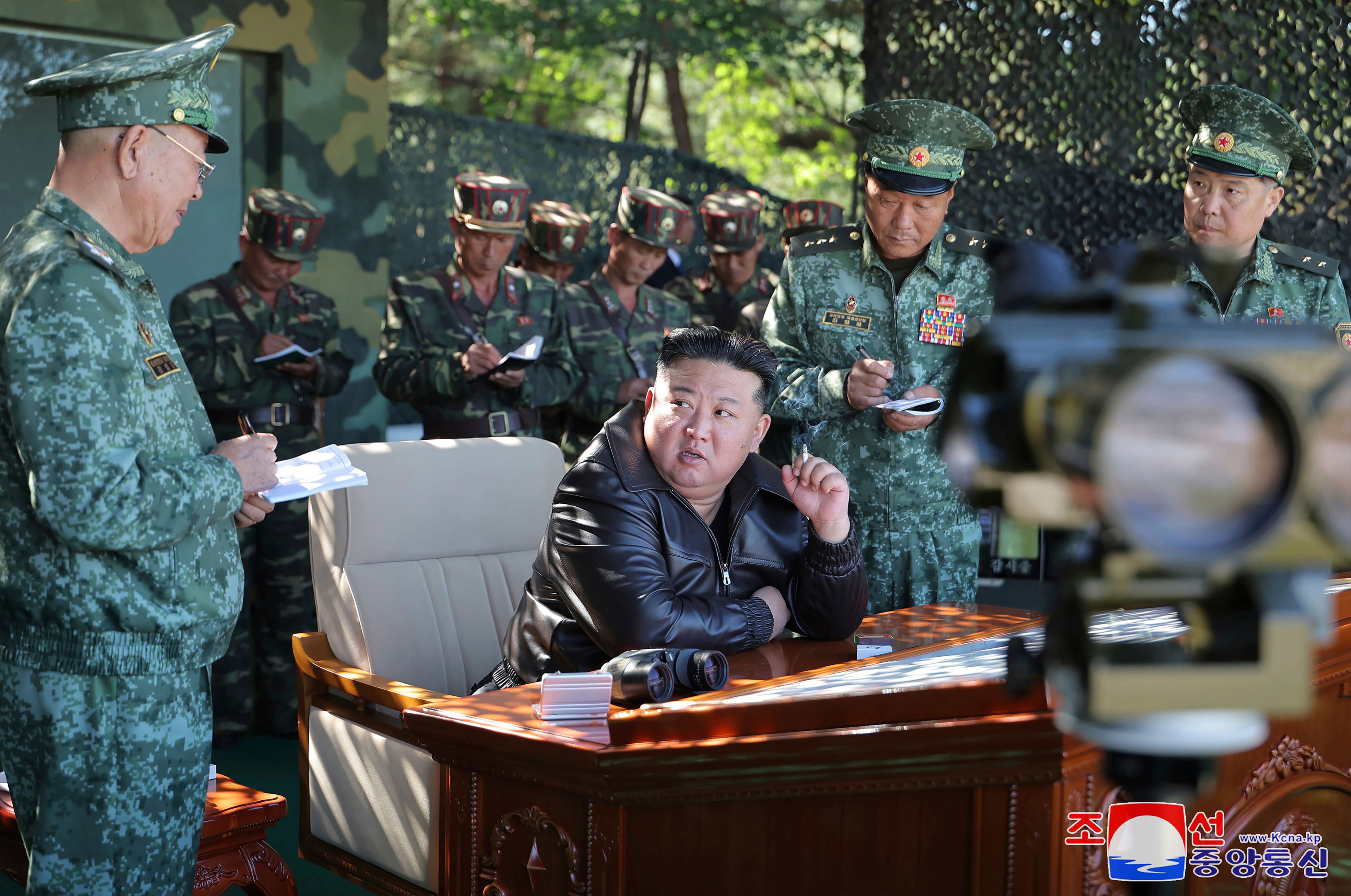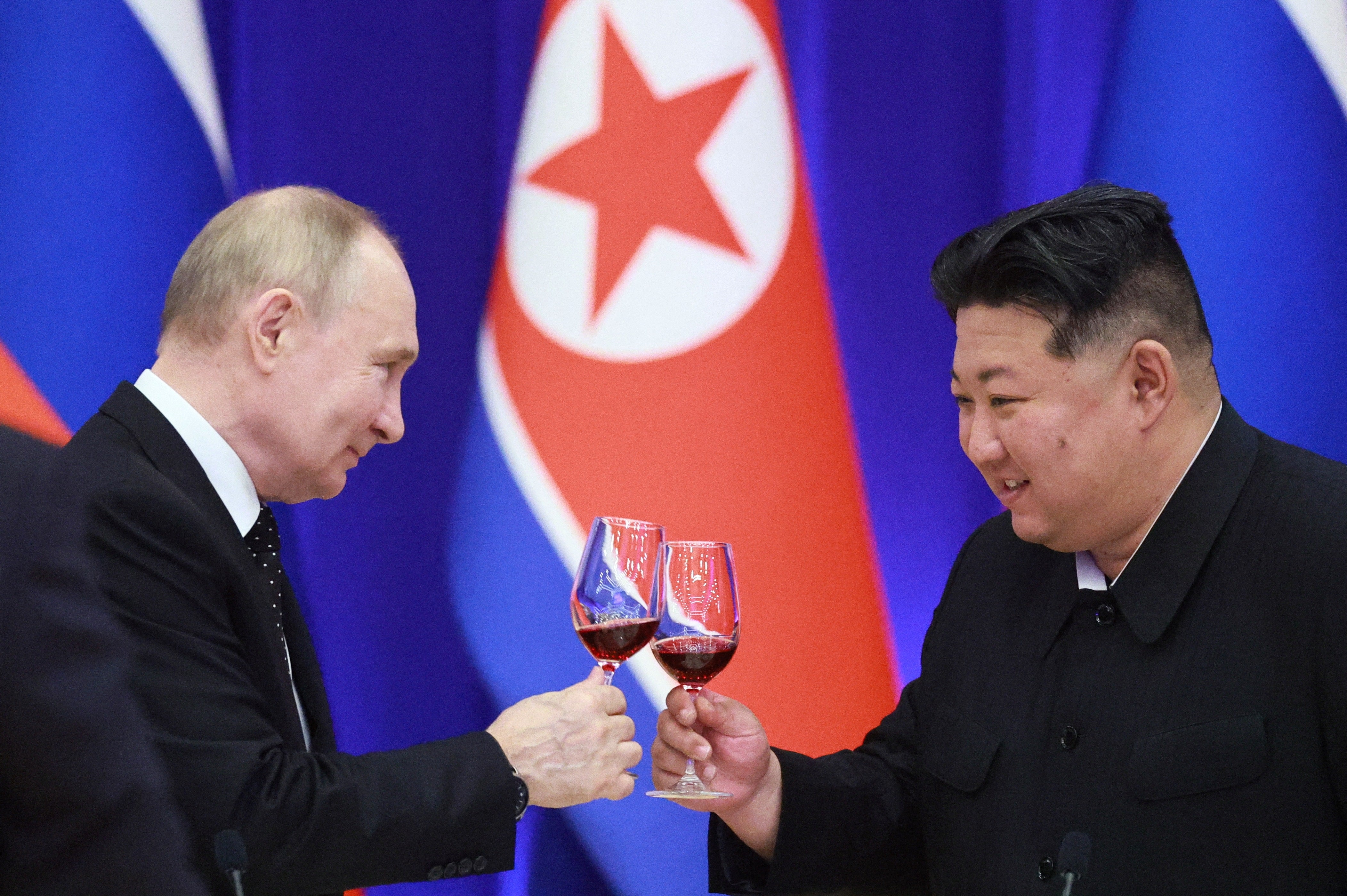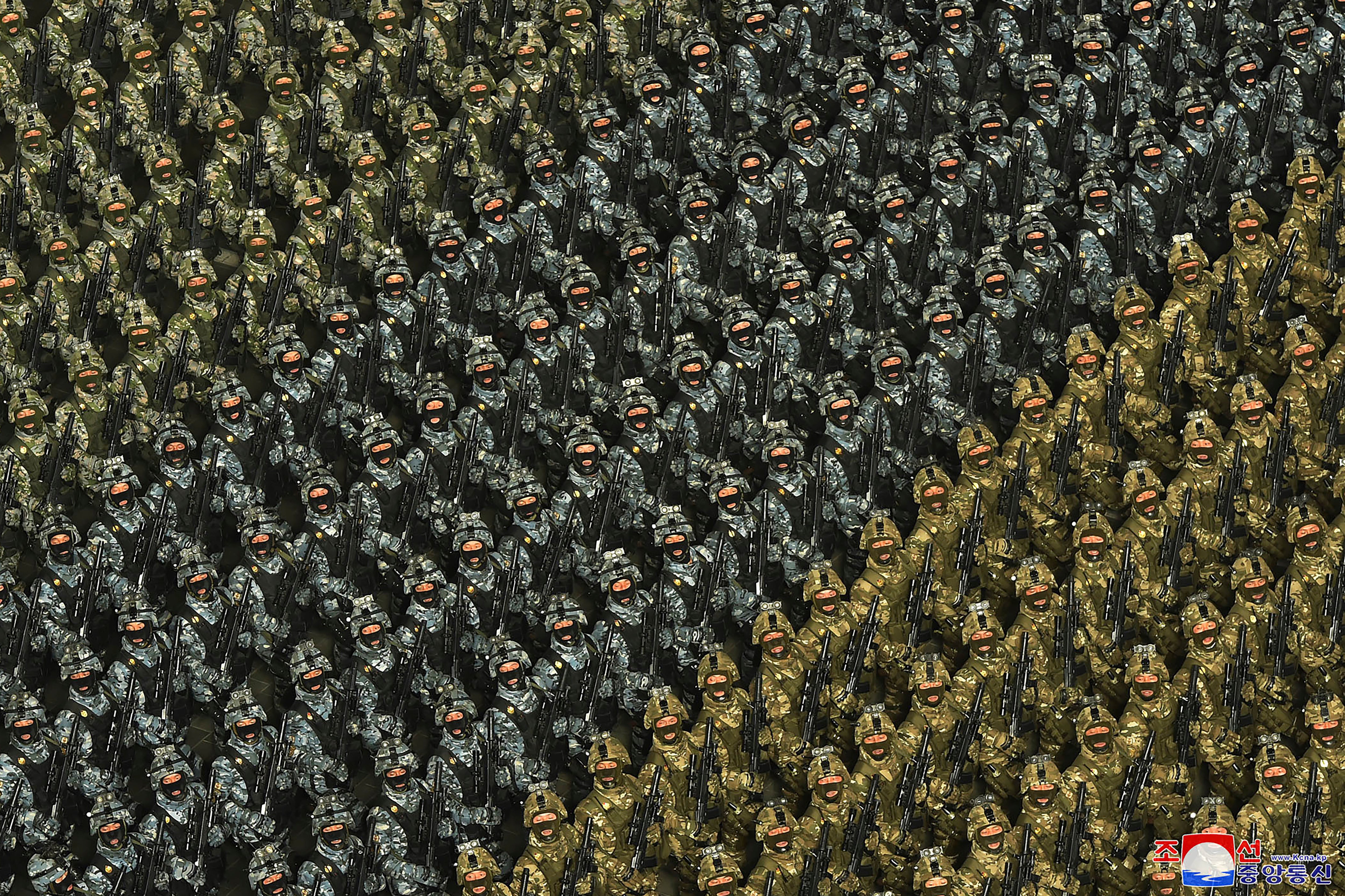Former North Korean soldiers on why troops will volunteer to fight in Ukraine
Thousands of young North Korean elite troops sent to Russia lack combat experience and local knowledge

Your support helps us to tell the story
From reproductive rights to climate change to Big Tech, The Independent is on the ground when the story is developing. Whether it's investigating the financials of Elon Musk's pro-Trump PAC or producing our latest documentary, 'The A Word', which shines a light on the American women fighting for reproductive rights, we know how important it is to parse out the facts from the messaging.
At such a critical moment in US history, we need reporters on the ground. Your donation allows us to keep sending journalists to speak to both sides of the story.
The Independent is trusted by Americans across the entire political spectrum. And unlike many other quality news outlets, we choose not to lock Americans out of our reporting and analysis with paywalls. We believe quality journalism should be available to everyone, paid for by those who can afford it.
Your support makes all the difference.The thousands of young soldiers North Korea has sent to Russia, reportedly to help fight against Ukraine, are mostly elite special forces, but that hasn't stopped speculation they'll be slaughtered because they have no combat experience, no familiarity with the terrain and will likely be dropped onto the most ferocious battlefields.
That may be true, and soon. Observers say the troops are already arriving at the front. From the North Korean perspective, however, these soldiers might not be as miserable as outsiders think. They may, in fact, view their Russian tour with pride and as a rare chance to make good money, see a foreign country for the first time, and win preferred treatment for their families back home, according to former North Korean soldiers.
“They are too young and won't understand exactly what it means. They'll just consider it an honor to be selected as the ones to go to Russia among the many North Korean soldiers,” said Lee Woong-gil, a former member of the same special forces unit, the Storm Corps. He came to South Korea in 2007. “But I think most of them won’t likely come back home alive.”

Worries about North Korea’s likely participation in the Russian-Ukraine war were highlighted this week when the Pentagon said North Korea has sent about 10,000 troops to Russia, and that they will likely fight against Ukraine “over the next several weeks.” Nato Secretary-General Mark Rutte said Monday that some North Korean military units were already in Russia’s Kursk border region, where Russia has been struggling against a Ukraine incursion.
North Korea's troop deployment could mark a serious escalation of the almost three-year war. It caught many outside observers by surprise because North Korea has its own security headache, a festering standoff with the United States and South Korea over its nuclear program.

Large North Korean troop casualties would be a major political blow for the country’s 40-year-old ruler, Kim Jong Un. But experts say Kim may see this as a way to get much needed foreign currency and security support from Russia in return for joining Russia's war against Ukraine.
“Kim Jong Un is taking a big gamble. If there are no large casualty numbers, he will get what he wants to some extent. But things will change a lot if many of his soldiers die in battle,” said Ahn Chan-il, a former North Korean army first lieutenant who is now head of the World Institute for North Korean Studies think tank in Seoul.
The Storm Corps, also known as the 11th Corps, is one of Kim’s top units. Its main missions would be infiltrating agents into South Korea, blowing up important facilities in the South and assassinating key figures in the event of war on the Korean Peninsula.
Lee, who served in the Storm Corps in 1998-2003, recalled that his unit received better food and supplies than other units, but many members still suffered from malnutrition and tuberculosis.
Despite a gradual economic recovery in North Korean over the past 30 years, defectors say the average monthly wage for ordinary North Korean workers and soldiers is less than $1. They say many people engage in capitalist market activities to make a living because the country's state rationing system remains largely broken.
Russia is expected to pay all the costs related to the deployment of North Korean troops, including their wages, which observers estimate will be at least $2,000 per month for each person. About 90% to 95% of their stipends will likely go to Kim’s coffers, and the rest to the soldiers. This means one year of service in Russia would earn a North Korean soldier $1,200 to $2,400. That's big enough to prompt many young soldiers to volunteer for risky Russian tours, former soldiers say.
Ahn said North Korea will likely offer other incentives meant to elevate the social standings of soldiers, such as membership in the ruling Workers’ Party and the right to move to Pyongyang, the country’s showcase capital. Kang Mi-Jin, a defector who runs a company analyzing North Korea’s economy, said even family members of soldiers sent to Russia could be given benefits such as good houses or entrance to good universities.
Choi Jung-hoon, a former first lieutenant in North Korea’s army, said serving on foreign soil will attract many soldiers who are eager to see other countries for the first time.
North Koreans are barred from accessing foreign news and need state approval to move from one province to another within the country. North Korean construction, logging and other workers sent abroad to bring in foreign currency have often been called “slaves” by international human rights groups. But defectors testify that such overseas jobs are often better than staying in North Korea, and many used bribery and family connections to get them.
“North Korean soldiers would see going to Russia as a once-in-a-lifetime opportunity,” Ahn said.
Ahn and other observers say such views could change if the soldiers see colleagues dying in large numbers. They say many North Korean soldiers could surrender to Ukraine forces and ask for resettlement in South Korea.
North Korean soldiers have been trained on the Korean Peninsula's mountainous terrain and are not familiar with the largely flat plain battlefields in the Russian-Ukraine war. They also don't understand modern warfare, including drone use, because North Korea hasn’t fought a big battle since the end of the 1950-53 Korean War, experts say.
“My heart ached,” said Choi, now leader of an activist group in Seoul, when he saw a Ukraine video purportedly showing undersized North Korean soldiers believed to be in their late teens or early 20s.
"None would think they are going to Russia to die. ... But I think they're cannon fodder because they will surely be killed when they're sent to the most dangerous sites,” Choi said.
Leader Kim Jong Un may also be hoping that his troop offer will push Russia to share sophisticated and highly sensitive technology that he needs to perfect his nuclear-capable missiles. That transfer could depend on how long the war continues and how many more troops Kim will send.
Nam Sung-wook, a former director of a think tank run by South Korea’s spy agency, said North Korea will likely get hundreds of millions of dollars because of the soldiers' wages. The soldiers will get direct experience of modern warfare but will likely die in large numbers, and Russia will be reluctant to hand over its high-tech missile technology, he said.
“North Korea will continue to hide its troop dispatches from its own people because the public will be agitated if they know their soldiers are being sent abroad to be killed,” said Nam, who is now a professor at Korea University in South Korea.